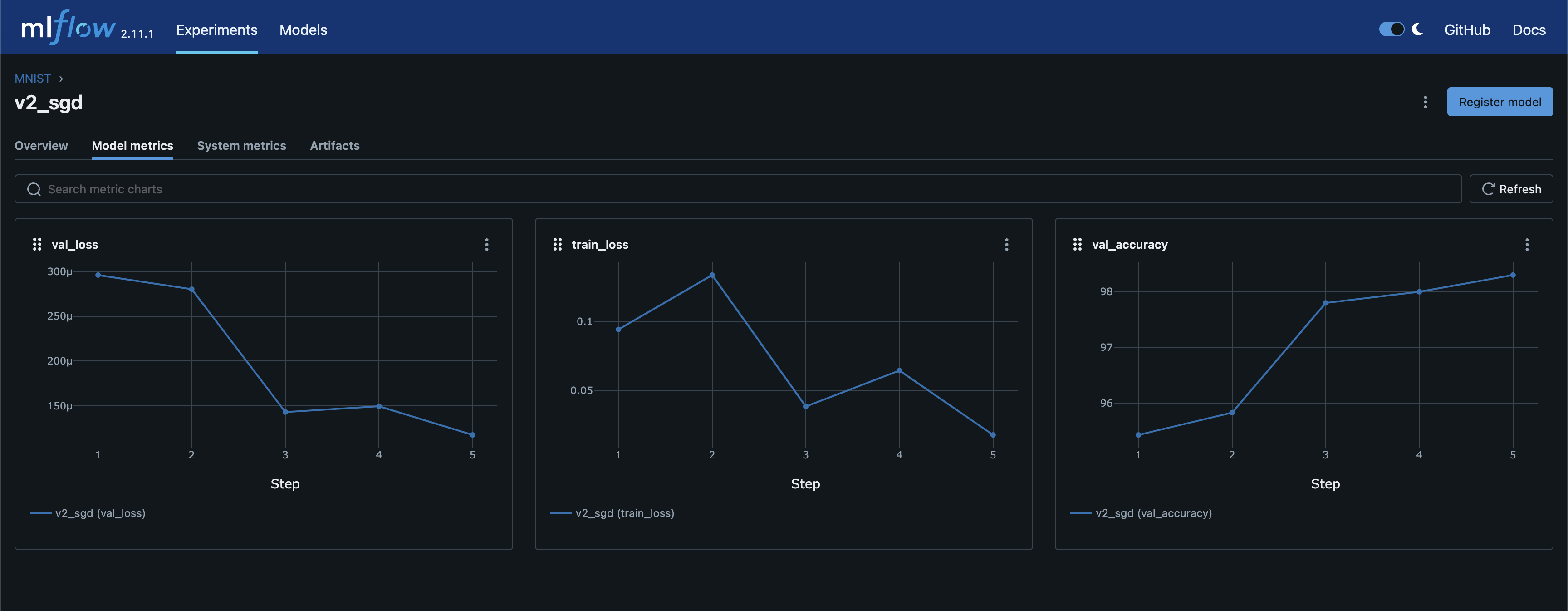- PyTorch: model training and fine-tuning
- MlFlow: experiment tracking and logging
- Hydra: configuration management
- KServe: model serving
- minikube: run a K8s cluster locally
- I chose to fine-tune a pre-trained MobileNetV2 model, because low inference latency was a priority. This is one of the model that was built to run on the edge, so its very small in size and has fast inference, with reasonable accuracy.
- Logged all the parameters, metrics and artifacts to MLFlow during the fine-tuning process, which helped in choosing the final model to deploy.
- Since I had to do some pre-processing on the input data for it to be compatible with the model input, I used the
Custom Predictorfeature of KServe and wrote a custom predictor for the PyTorch model. - Packaged everything into a Docker image and tested locally.
Note: For this task I also copied the model into the Docker image (for simplicity), but we can keep it outside in an object storage as well, for easy switching between models.
- Started a minikube cluster and installed KServe on it.
- Created a KServe Inference Service and applied it to the minikube cluster.
- Used Port-Forwarding from the Inference K8s service to test on localhost.
- Use Poetry python package manager for better dependency management
- Use Prometheus for service monitoring
K8s curl prediction request (using port-forwarding)






